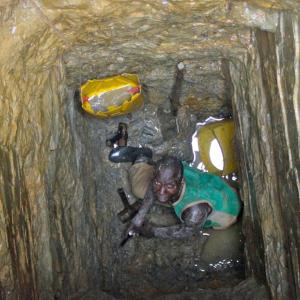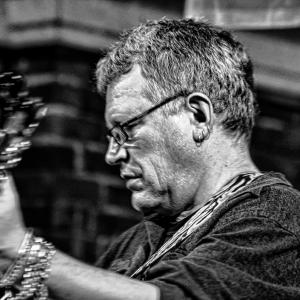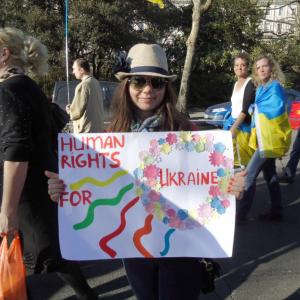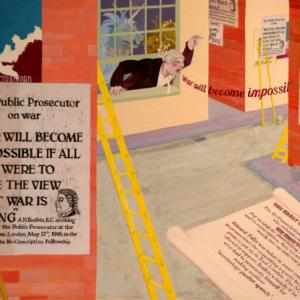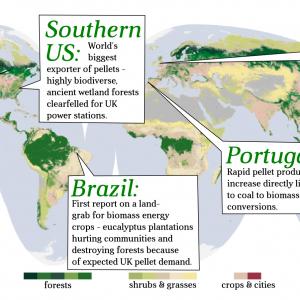By 1918, Britain’s No-Conscription Fellowship was led by women, as the male leadership was in prison. Catherine Marshall was a key organiser of the NCF. Joan Beauchamp was the official publisher of the NCF’s newspaper, The Tribunal, and Lydia Smith her secret co-editor, using a woman with a pram as a…
Features
We’re bringing peace and justice activists from across Europe to help us mark the centenary – and to ‘Declare Peace’ on the 100th anniversary of the day that Britain declared war on Germany. We will also have workshops and discussions, practical skills sessions, delicious vegan food cooked by Veggies, films, fun and DIY entertainment, a bar, a campfire, and activities and facilities for children and families.
We are delighted to be welcoming well-known and well-loved peace activists…
Thank you to the 220 people who so generously responded to the questionnaire sent out with the last issue. We really appreciate your taking the time to give us feedback on what we’re doing. The questionnaire is part of a social audit that Peace News is carrying out, to evaluate what we’re doing, how far we’re achieving the goals we’ve set ourselves, and how we could better serve the community of people seeking positive social change in Britain and around the world.
There will be more…
‘We have little mini-successes and we celebrate them because we need to; otherwise we’ll go stark raving mad,’ New York activist Maura Stephens said during a Peace News round-table discussion via video chat on 17 April.
During the conversation, two US and two British anti-fracking activists compared how their movements have organised, and brainstormed tactics for fighting ‘hydraulic fracturing’ for oil and gas in the future.
Stephens thinks organisers need to reflect on what is…
Weekly vigil, 14 May, North Gate of the Trident submarine base at Faslane, Scotland. A message from Faslane Peace Camp: ‘It’s now well into spring and the pace is picking up as we get closer to September’s crucial vote on Scottish independence. Leaving to one side our plans for clandestine activities, we can announce that over the weekend of 13-15 June, the camp will be celebrating its 32nd birthday. Come stay the whole weekend for direct action workshops, vegan food and entertainment. That…
‘I think fracking is entirely the wrong direction for UK energy policy, and I feel that if we act now we can prevent the establishment of a fracking industry in this country,’ Laura Bannister said.
Bannister is a European election candidate from Manchester and Salford, an area currently being exploratory drilled for natural gas. She has been a member of the…
At the moment, PN staff are the only listed UK promoters of Campaign Nonviolence, the nonviolence study/action group initiative started by Pace e Bene in the US last year. Milan Rai, Emily Johns and Gabriel Carlyle are in a Campaign Nonviolence study/action group in Hastings (it’s called Burning Gold, after a line in a William Blake poem).
This March and April, Campaign Nonviolence has been running workshops across the US to ‘help build the campaign to mainstream active nonviolence…
First of all, I need to say that moving to the Fairphone has been a major technical upgrade for me as before it I had a very basic smartphone (Samsung Galaxy Y), so my judgement will be influenced by this. Though I would like to add that I have never felt inclined to buy a high-priced smartphone before the Fairphone, as I never found the utility justified the price.
With the Fairphone, the clear breakdown of the costs of production, and the idea that I was investing in innovation and…
It all started with a room full of grassroots activist trainers, a US anti-oppression worker and a discussion about power and privilege.
‘I think there was discomfort, unhappiness, shock, disbelief, anger, that: “Oh, I am a part of this problem. This feels uncomfortable.” Because as social justice activists we try not to replicate the very same oppression we are trying to change,’ Denise Drake told Peace News recently.
Drake is a trainer with Turning the Tide, a London-based…
Robb Johnson will be performing songs from
his highly-acclaimed Gentle Men album about
his grandfathers and the First World War.
Photo: Eric the Fish
This year we are delighted to be welcoming to Peace News Summer Camp Britain’s top peace researcher, professor Paul Rogers of Bradford School of Peace Studies; Emma Sangster, co-founder of ForcesWatch, one of the most exciting anti-militarist projects of recent years; Bruce Kent, Britain’s best-known and best-loved peace…
An industrial truck creeps down the road towards the gate, held up by 35 slowly-walking individuals. It could take up to two hours for the driver to arrive with equipment necessary to keep operations moving at IGas Energy’s Barton Moss fracking site just to the west of Manchester.
‘That happens every day. That’s happening right now, as we speak,’ Robbie Gillet of Frack Free Greater Manchester said in an interview, with sounds of a…
I have been asked to talk about the relation between war resistance and resistance to injustice.
There are many points to be made that I need hardly belabour. I don’t have to argue with any of you at this conference that if we resist war we must look to the causes of war; try to end them. And that one finds the causes of war in any society that encourages not fellowship but domination of one person by another. We must resist whatever gives encouragement to the will to dominate.
…‘Right now, people who are involved in nonviolent activism in Syria are mainly having to do two things: relief work, to deal with the catastrophic levels of humanitarian disaster and then underground civil resistance, like newspapers, news agencies, schools, hospitals and clinics,’ Mohja Kahf told Peace News in March.
Kahf, a member of the Syrian Nonviolence Movement (SNVM), was born in Syria but grew up in the United States, where she is now an associate professor of Comparative…
Thousands protest in London on 16 March against the
Russian invasion of Crimea. Photo: Clare Dimyon
This comment was written on 3 March, before the Russian invasion of Crimea changed the dynamics of the Ukrainian crisis.
Dramatic words or violent acts were not how the Ukrainian people ousted an authoritarian leader and his cronies. Civil resistance shredded the legitimacy of a repressive and corrupt government. The nonviolent movement dissolved the…
The fracking revolution in the US has had a number of unintended consequences. As well as polluting groundwater and causing other environmental damage, the use of ‘hydraulic fracturing’ to exploit shale gas has lowered US gas prices massively. This has put huge pressure on the US coal industry, which has had to lower its prices in consequence, and also find new markets. These cheap US coal exports have damaged the European gas industry (which has closed or mothballed about 50,000MW of gas-…
Demand for biomass is sky-rocketing in the UK. Burning wood for large-scale electricity generation is a key element of the UK government’s renewable energy policy and 42 new biomass power stations have already been proposed. Energy companies have announced that they intend to burn 68.9 million tonnes of wood a year in these power stations. This works out to eight times the UK’s total annual…
In terms of economic mobilisation, Dr Glenford D Howe notes that, in the West Indies alone: ‘Gifts [in kind] to the value of several thousand pounds were contributed by the colonies to the war effort; these included sugar, rum, oil, lime, cotton, rice, clothing, logwood, and nine aeroplanes. A total of 11 ambulances and adequate funds for their maintenance were donated, and approximately two million pounds sterling was given to the British government and charities.’…
Who would have guessed that there was a peaceful connection between Russian czar Nicholas II, who was later assassinated, and the London borough of Islington?
Well, there was. In 1898, Czar Nicholas sent a message to all the major heads of state urging them to come together to discuss ending an arms race ‘which will lead to the very disaster which it is desired to avoid… we must put some limits on these increasing armaments and find means of averting the calamity that threatens the…




